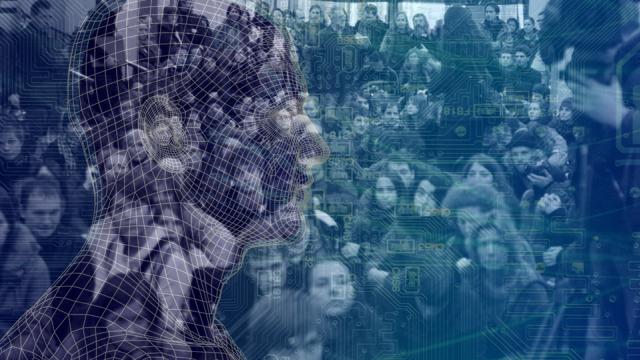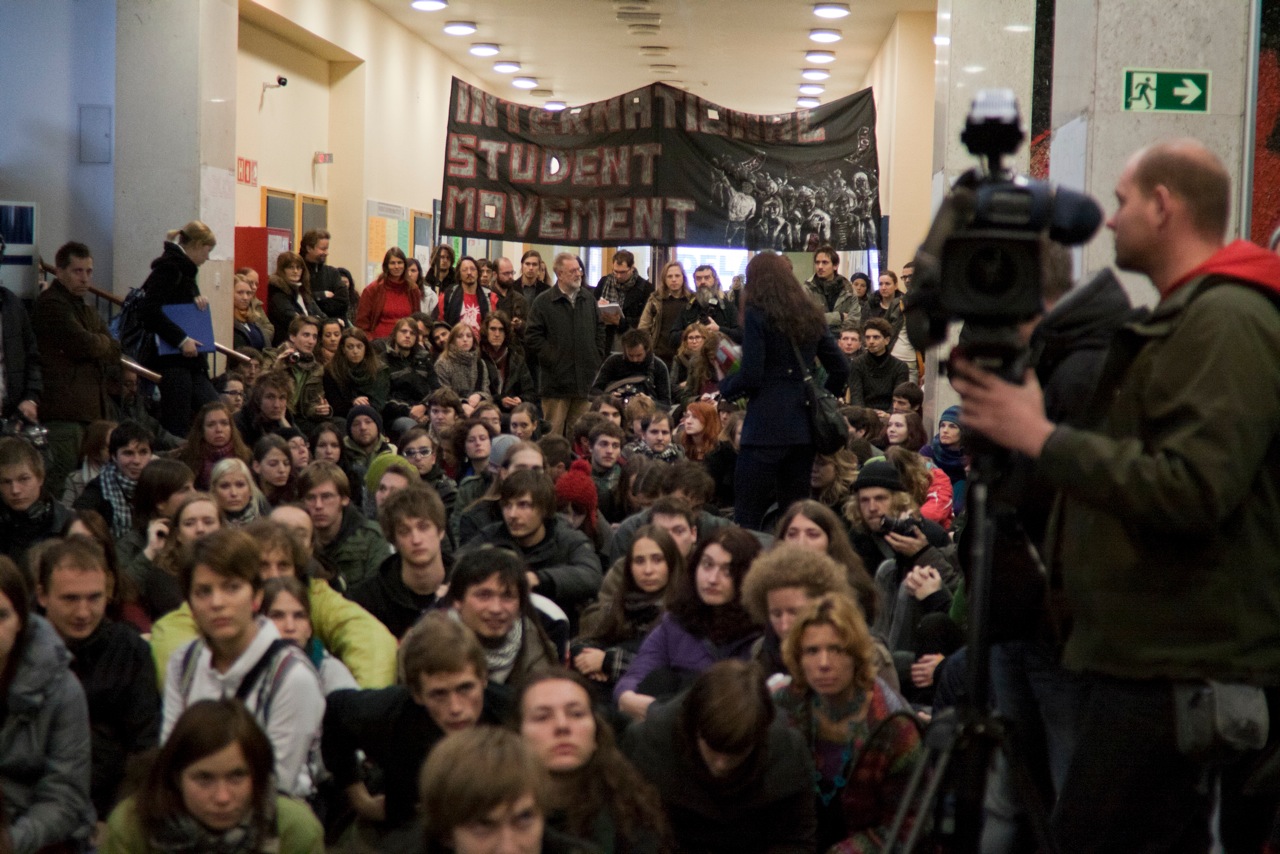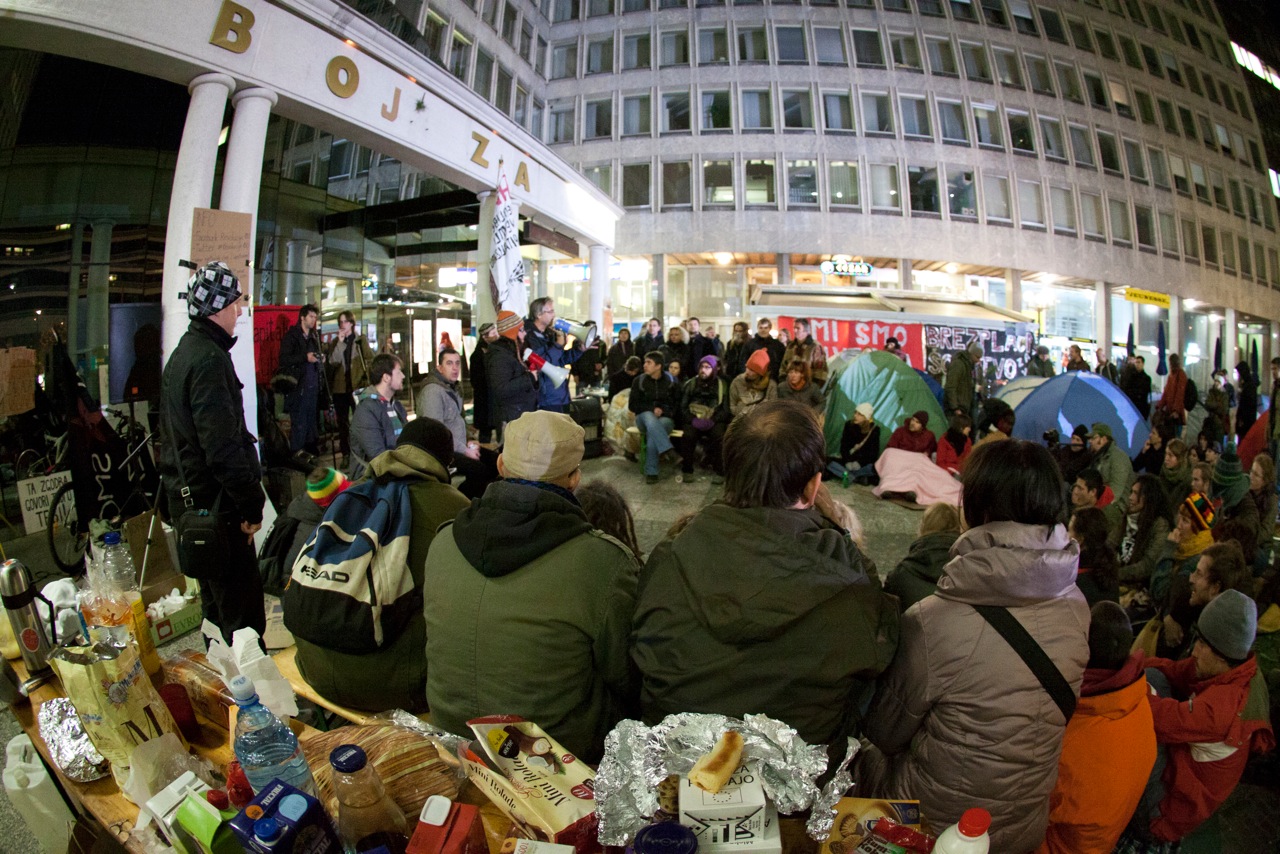
A Slovenian student movement plans to initiate direct digital democracy. The small Balkan nation’s political structure provides an autonomous zone to develop a process that, once it gets refined, could be extended internationally.
“We want to formalize and structuralize a political platform, which would [be] backed by broad popular movements demanding change against the ruling classes,” says Luka Tetičkovič, who works as a prosecutor for the Studentska Iskra student union.
“This student movement will apply the ideology of Democratic Socialism, including [goals of] direct democracy, people before profits, worker-owned means of production and democracy-driven central economic planning,” Tetičkovič said.
One of the initiatives being developed by Studentska Iskra is an independent student parliament. As Tetičkovič explained:
“It is a state within a state - it has its own parliament, its own president, its own internal watchdogs and systemic funding. It acts as a representative of students' interest when negotiations with the government are taking place.”
All student employment in Slovenia is taxed at a rate of 4.5%. In the new plan, this revenue would be controlled by the student parliament itself. “At the moment these funds are allocated very arbitrarily, mostly channeled to commercially viable [projects]. At the same time, the administration is cutting funds for social programs and alternative media in Slovenia under the auspices of austerity.”
The country’s population, just over 2 million, is facing a privatization agenda that includes sales tax increase and steep service cuts. Recently, plans were announced to sell off 15 state enterprises, including Slovenia's second largest bank and telecommunication firm. 2013 has already witnessed a continuation of protests against these measures, with tens of thousands taking to the streets.
Studentska Iskra is a new movement that emerged from an occupation which took place at a university arts faculty in early 2012. Last October, the group won 5 out of 45 seats in the student parliament. Tetičkovič says this set a new precedent because “for the first time in the history of the student parliament, we are a structured and established opposition with a strong ideological framework."
"We criticize and partake in parliamentary discussions, acting as a watchdog over the ruling coalition, and we are actively informing the public on the back-door politics of non-transparent and arcane practices.”
The movement's next target is to set up a participatory budget, giving students a say about how their taxes are spent. “It is every student’s right to have a vote on the redistribution of their money,” he added.
“Recognizing that the student body is young, progressive and willing to pioneer new ideas, we firmly believe that with [Studentska Iskra] there is great potential to engage in voting on common assets, if we are able to produce a secure and a state-of-the-art internet driven decision-making platform.”
To encourage the process, the group has recently arranged a free week of academic courses in the capital Ljubljana. The lectures are challenging the increases in student fees and the reduced range of academic courses being offered. They are also establishing roundtable meetings, pushing petitions to reject neoliberal polices and advocating for social programs.
To this end, Iskra is teaming up with the online platform Danes Je Nov Dan (Today Is a New Day), which is developing technical tools to enable more widespread participation. The group’s ethos is based on five themes. First, that the starting point for direct democracy is every individual's right to a good life within a cohesive society.
Second, Danes Je Nov Dan advocates a wide range of specific human rights — which, like the Icelandic direct democracy project, include Internet freedom rights. Third, like Studentska Iskra, Danes Je Nov Dan focuses on the right to democratic political arrangements and inclusivity. Fourth, it advocates the rights of nature. And finally, it rejects the idea that the public should have to repay private debt.
"The final form of the direct democracy platform is still a mystery," Tetičkovič said. "We are starting with baby steps — hence the participatory budget that would engage voters.”
But with the options now opening up through digital communications, a functioning virtual space where all citizens can have input into their government — especially in a small country like Slovenia — may not be far off.
“We are replacing a horse-driven cart with an engine," added Tetičkovič. "This is not a revolution, it's technical progress.”
3 WAYS TO SHOW YOUR SUPPORT
- Log in to post comments




















